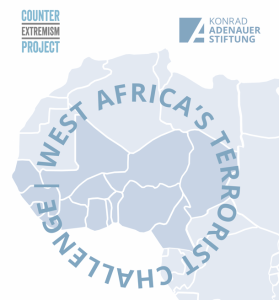Executive Summary
Since the initial rise in violent extremist and terrorist groups in the Sahel in the mid-2000s, the number of such groups in the region has continued to grow. This is reflected in the nature of the opportunistic alliances that have developed among different groups, with varying interests and memberships. Furthermore, these groups have changed their operational tactics over time and, since 2019, began a gradual expansion of their activities towards the littoral states of West Africa.
This paper focuses on two of the most important extremist groups in the Sahel: Islamic State in West Africa Province (ISWAP) and Islamic State in Greater Sahel (ISGS). In discussing the origins of both groups, this paper argues that their establishment was not borne out of religious rationales alone. Rather, ISWAP’s and ISGS’s formation and expansion were based on their fractured relationships with the organizations from which they split and to a certain extent transformed, as well as their pursuit for new allegiances and competition for preeminence in the leadership as they battled to expand and establish Islamic states in northern Nigeria, Cameroon, Chad, Niger, and the Sahel.
Ideologically, this paper identifies the adoption of Takfiri doctrines as the driving force resulting in more draconian interpretation and implementation of Islamic laws implemented by the hisba relating to zakat, hudud, ta’zir, and qisas. This paper argues that factionalism and splits from the original organizations represent fundamental splits from their original members and that the alliances formed by these originally distinct groups constitutes a fundamental split and shift in operational tactics.
ISWAP and ISGS operations are characterized by opportunism and exploitation of local grievances that enables them to build specific narratives for support. As their operations expand, one of the key income streams is the institution of zakat, the 10 percent alms tax every Muslim must pay, supplemented by the jizya, the non-Muslim tax. Additionally, robberies and kidnapping of high-value targets is rampant. With the acquisition of better logistics, since 2021, both groups have experienced expansionary moves to other parts of West Africa and the Sahel including Mali, Burkina Faso, Benin, Togo, and Niger. This paper argues that potential collusions among these two Jihadi groups and with government officials and community leaders underpin these expansionary moves. Existing vulnerabilities serve as possible avenues for collusion. Such occurrences undermine state capacities to counter the presence of Jihadi groups through winning the hearts and minds of citizens. This paper briefly outlines the nature and capacity gaps of Sahel and West African states to confront and degrade the capabilities of these groups.
It offers several recommendations including what concrete actions German and European policymakers should take. These include:
- Identify, support, and strengthen structures and stakeholders who contribute to communityresilience;
- Strengthening hybrid political and security orders to protect livelihoods;
- Initiate security sector governance and reform measures to improve performance ofstatutory agencies; and
- Establish a border security cooperation council among Sahel states to share information.
Read the entire article as pdf.




